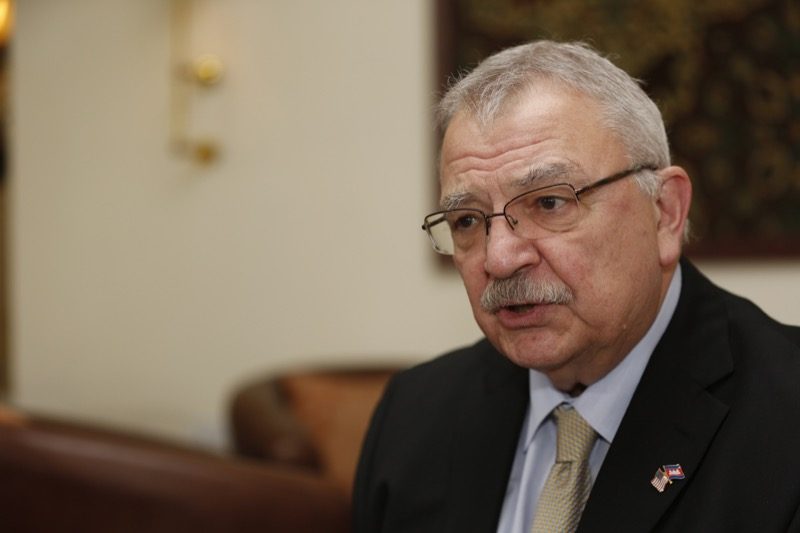U.S. companies considering investing in Cambodia see a “mixed bag” in the country, contrasting heavy spending on infrastructure and a growing focus on IT with slow integration with Asean and high energy prices, a representative for a visiting business delegation said on Wednesday.
Delegates from 14 U.S. companies—including General Electric, 3M and Coca-Cola—wrapped up a two-day visit to gauge the country’s investment potential on Wednesday after meetings with a wide range of government officials.

Michael Michalak, regional managing director of the US-ASEAN Business Council, said the companies, representing sectors ranging from agriculture to automotive, generally came away optimistic.
In discussions on the main brakes on foreign investment, high electricity prices often tops the list. Cambodia is racing to build several more hydropower dams to bring costs down and just last week saw the approval of a major coal-fired power plant expansion in Preah Sihanouk province to serve Phnom Penh.
But Mr. Michalak said efficiency was a bigger problem, and one some of the companies saw potential in helping solve.
“It’s not so much that [Cambodia is] lacking a lot of energy. It’s that what you have is costing you more than it should,” he said. “And so by increasing the efficiency, you can lower the cost of energy, which then makes Cambodia more attractive to investors because they can start their factories and whatnot using energy that is more realistically priced. When it’s too expensive, they’re just going to say, ‘Sorry, we’re not going to be here.’”
Corruption and a dearth of skilled labor also rank high among investor concerns.
For all the work the Cambodian government says it does trying to tackle corruption, the country’s rank on Transparency International’s annual Corruption Perceptions Index—a measure of how much graft locals perceive—has moved little from its place near the bottom over the past decade.
Mr. Michalak, however, said he was encouraged by efforts some ministries were making to move some of their services online, where there should be fewer opportunities for graft. He said the delegation was also impressed with the Education Ministry’s plans for more secondary schools ready to train students for the high-tech jobs of the future.
“So it’s a mixed bag,” he said.
Asked how the nation’s increasingly tense political climate leading up to commune and national elections was likely to affect investment, Mr. Michalak said the companies feared uncertainty.
“As long as there is uncertainty around, most investors will wait and see. They won’t go forward. They won’t go backward. They’ll just wait and see. And if the uncertainty continues, then that would also likely mean that investment decisions might be put on hold,” he said.
Mr. Michalak said it was hard to generalize, “particularly because information is a little scarce here, and what do you believe and what do you not believe? Companies are always trying to figure that out. What’s real and what’s not?”
Coverage of the U.S. business delegation’s visit by Cambodian government mouthpiece Fresh News, for instance, claimed that 500 U.S. companies would be increasing their investments in the country.
“I think they made a mistake. We did say we had members of the Fortune 500,” Mr. Michalak said. “It’s a little distorted. In fact, it sounds a lot distorted.”
But he said the potential for more investment was there and another delegation would be back next year.




